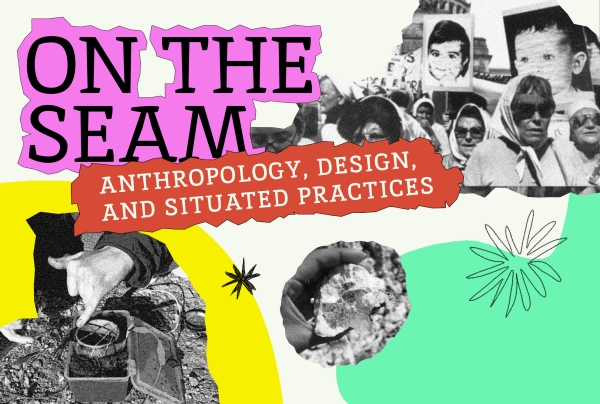Anthropology and design are both shaped by colonialism,
though distinct in their disciplinary and historical trajectories. Today, these colonial legacies are entangled in how they
each shape, study, and intervene in the world. Design, often celebrated as a force of innovation, carries with it a promise
of better futures, of solutions, of progress. But as feminist and decolonial critiques remind us, progress is never neutral.
It is rooted in extraction and exclusion, and shaped by histories and presents of ableism, capitalism, colonialism, patriarchy,
and white supremacy. Therefore, the promise of better futures is not accessible to everyone in the same way. But design, as
a practice of worldmaking, is also a site of possibility—a way of shaping what could be. The question remains: whose worlds
are being created, and who is involved in this process? By contrast, anthropology often unsettles the very narratives that
design provides. It makes visible the frictions, contradictions, and inequalities embedded in everyday life. It asks: whose
futures are being imagined, and whose pasts are erased as a result of this? It critiques, it disrupts, it refuses. However,
in its critique, anthropology risks remaining at the level of refusal—treating design as an object of study rather than engaging
design and designers as partners in practice. Even worse, it sometimes replicates neoliberal designerly modes of making while
overlooking the histories of anti-capitalist, decolonial, and feminist critiques already present within design. If design
imagines, anthropology questions. But can anthropology also imagine otherwise? This symposium sits with these tensions. What
happens when anthropology and design meet—not in harmony, but in friction? How do their practices, methodologies, and ways
of knowing collide, entangle, and transform? Can the meeting of anthropology and design become a site of worldmaking—not in
the service of dominant social orders, but in response to the struggles of those who refuse them and are impacted by their
injustices?
Over two days of presentations, roundtable discussions, and conversational formats,
On the Seam
explores how anthropology and design intersect—whether in education, technology, or engaged practices within and beyond academia.
Through feminist and decolonial lenses, and practices emerging from within them, Dana Burton, Imad Gebrael, Farah
Hallaba, Mahmoud Keshavarz, Cherry-Ann Morgan, Prathima Muniyappa, Helen Pritchard, Bibiana Serpa,
and Grace Turtle consider how knowledge is produced, how power is held, and how certain ways of knowing, being,
and making are rendered invisible. We ask whether anthropology and design can be mobilized collaboratively—not to reproduce
hegemonic structures, but to create space for more just, situated, and pluralistic ways of inhabiting the world.
Please register in advance:
RegistrationOn the Seam: Anthropology, Design, and Situated Practices is a collaboration between Design History
and Theory and Futuress as part of the Austrian Science Fund (FWF)-funded research project directed by Professor Alison J.
Clarke: Design Anthropology: Cold War Industrial Design & Development (Grant DOI 10.55776/PAT4411223). The event is co-curated
by Anna N. Nagele and Maya Ober and co-coordinated by Mio Kojima and Anna N. Nagele. Visuals by Heba Daghistani.




